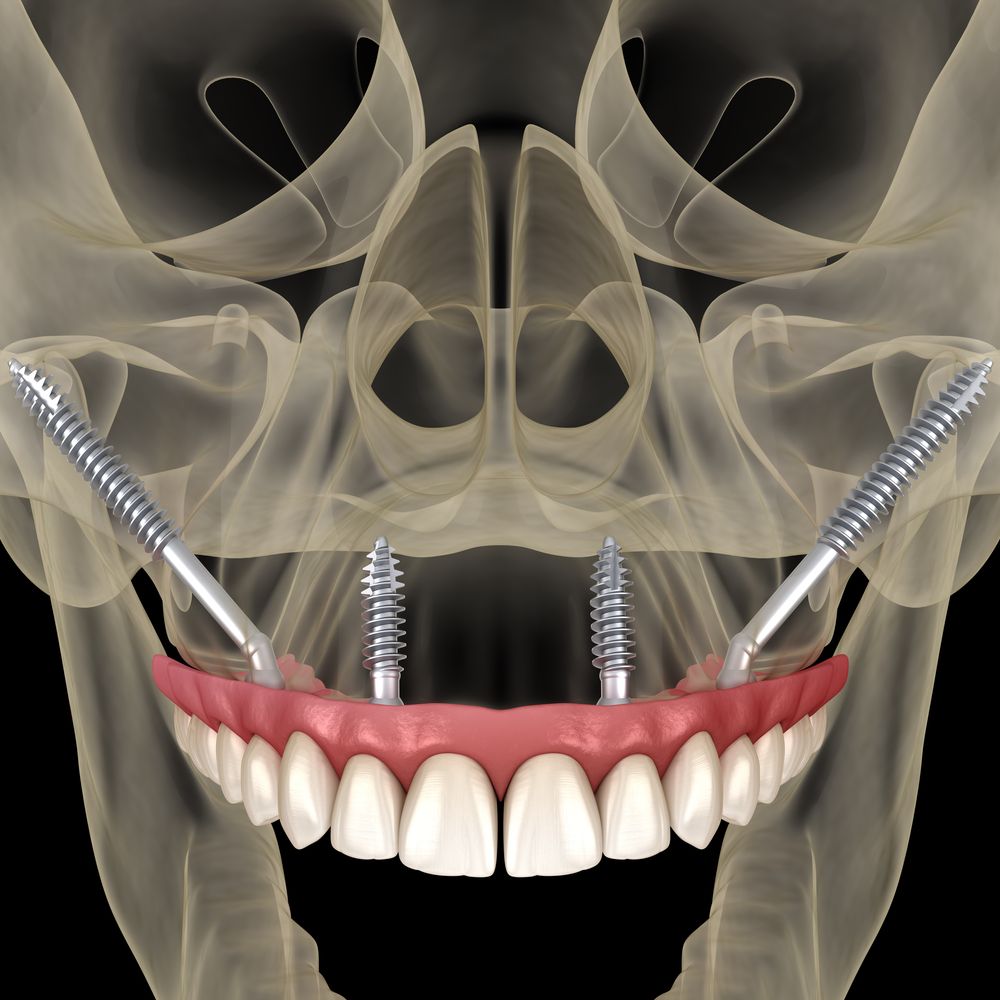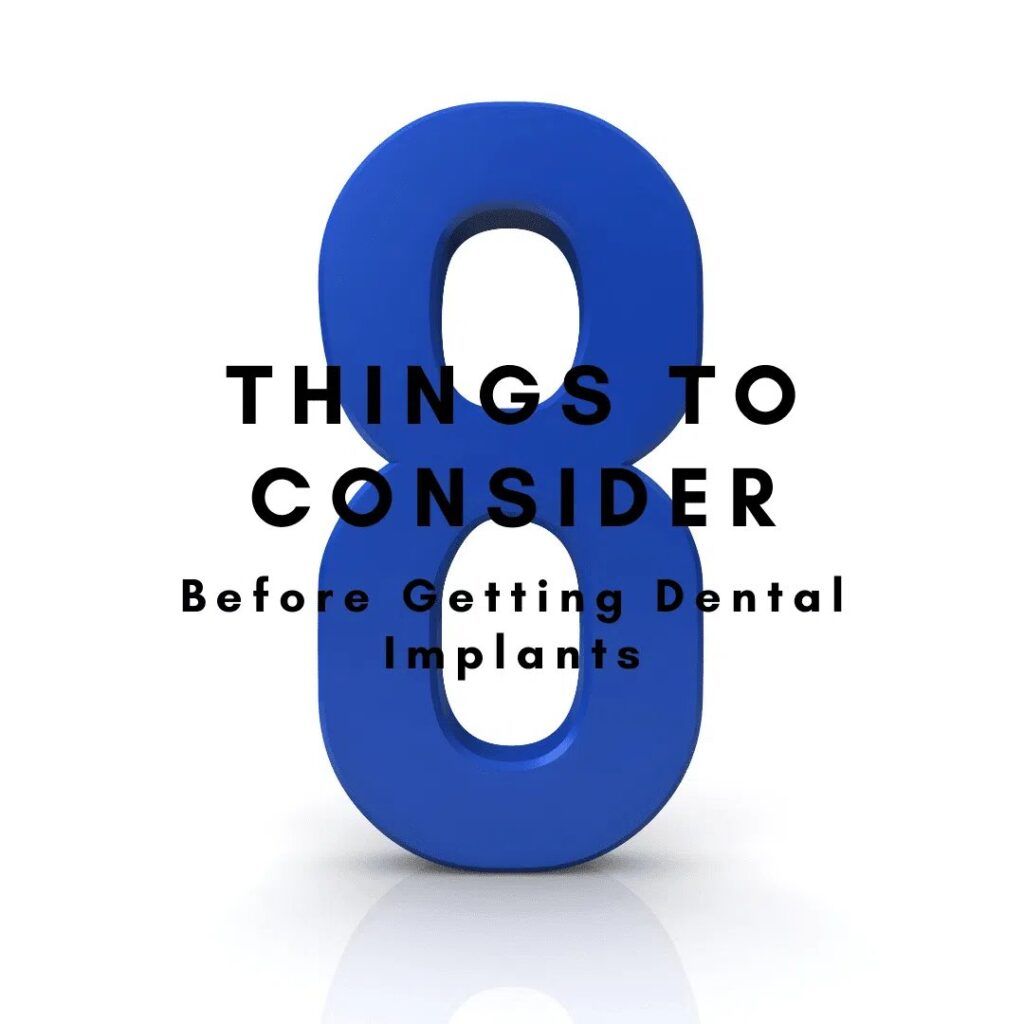If you are considering dental implants, it is important to be aware of all the facts before moving forward. Dental implants are a great way to replace missing teeth, but they are not right for everyone. There are a few things you should consider before getting dental implants, such as your oral health history and whether or not you are a candidate. In this blog post, we will discuss eight things that you should keep in mind before getting dental implants.
#1 Not everyone is a candidate:
One of the first things you should consider is that not everyone is a good candidate for this type of surgery, so it is important to speak with your dentist to see if you are a good fit. To determine if you are an ideal candidate, your dentist will consider your oral health history, the state of your gums, and the condition of your jawbone.
#2 Oral health problems need treatment before dental implant surgery:
It is important to keep in mind that just because you have oral health problems doesn’t mean that you are automatically not a candidate for dental implants, however you may need to address certain oral health problems first. For example, if you have active decay, gum disease, or any other oral health problem, it will need to be treated before you can get dental implants. This is because these problems can cause the implants to fail.
#3 A minor oral surgery is required:
In order to place the implant, a small surgery is required. Dental implant surgery will usually take place in your dentist’s office under local anesthesia and does not require a hospital stay. During surgery, an incision will be made in your gums, the implant will be placed into the jawbone, and a temporary crown, bridge, or denture will be placed on top. You will need to go back for a follow-up appointment so that your dentist can make sure that the implant is healing properly. It typically takes a few months for the implant to fuse with the bone before you can get a permanent restoration.
#4 Accessory treatments may be needed:
In some cases, additional treatments, such as bone grafting or a sinus lift, may be needed in order for the implants to be successful. Bone grafting is a surgical procedure that is used to repair or replace bone by placing new bone material. A sinus lift is a surgical procedure that is used to increase the height of the sinus floor in order to prevent the implant from puncturing through to the sinus cavity. These additional treatments can add to the cost of getting dental implants. They can also increase the length of your treatment plan.
#5 There are different types of dental implants:

Traditional dental implants are the most commonly used type of implant, however they are not the only type of dental implant. There are also mini dental implants (MDIs) and zygomatic dental implants. A mini dental implant is a type of dental implant that is smaller than a traditional dental implant and is often used in cases where there is not enough bone density to support a traditional implant. Mini dental implants are typically used to help stabilize dentures. Zygomatic dental implants are another type of dental implant that is used in cases where the jawbone is not strong enough to support a traditional implant. Zygomatic implants are longer and are placed in the cheekbone instead of the jawbone.
#6 Recovery can take months:
Dental implant surgery is a minor surgical procedure, however it still takes time to recover. The length of your recovery will depend on the type of dental implants you get, as well as how many implants are placed. It can take anywhere from a few weeks to a few months for the implants to heal and for you to fully recover. While postoperative pain will only last a few days, the longest part of recovery is waiting for the implants to fuse with the surrounding bone. This is a process known as osseointegration, and it can take around 3-6 months on average. During this time, you will need to follow all your dentist’s instructions to prevent implant failure.

#7 Dental implants cost more upfront:
Dental implants have a higher upfront cost than other tooth replacement options, such as dentures or bridges. However, they last longer and rarely need to be replaced. On the other hand, both dentures and bridges will need to be regularly replaced when they wear down or no longer fit due to changes in the facial bones. Dental implants prevent bone loss and can be permanently left in place. Although the attached restoration will eventually need to be replaced, the implant itself remains intact. Because of this, many people feel that dental implants are worth the investment.
#8 It is important to choose the right dentist:
When getting dental implants, it is important that you choose a qualified and experienced dentist. Not all dentists are the same when it comes to placing dental implants. For example, some dentists may only offer traditional implants or may lack the experience to place implants in someone with bone loss. Therefore, it is important to seek out the expertise of a dental implant expert who can prove their experience. A dental implant dentist will be able to help you determine if dental implants are right for you and ensure that the surgery is done correctly.
In Conclusion
In this blog, we have discussed eight things to consider before getting dental implants: not everyone is a candidate, oral health problems need treatment before dental implant surgery, a minor oral surgery is required, dental implants cost more upfront, accessory treatments may be needed, there are different types of dental implants, recovery takes months and it is important to choose the right dentist. We hope that this blog has been helpful in providing you with information to make an informed decision about whether or not dental implants are right for you.
If you have any questions about dental implants or would like to schedule a consultation, please contact our office. We would be happy to answer any of your questions and help you on your journey to achieving a beautiful, healthy smile!

